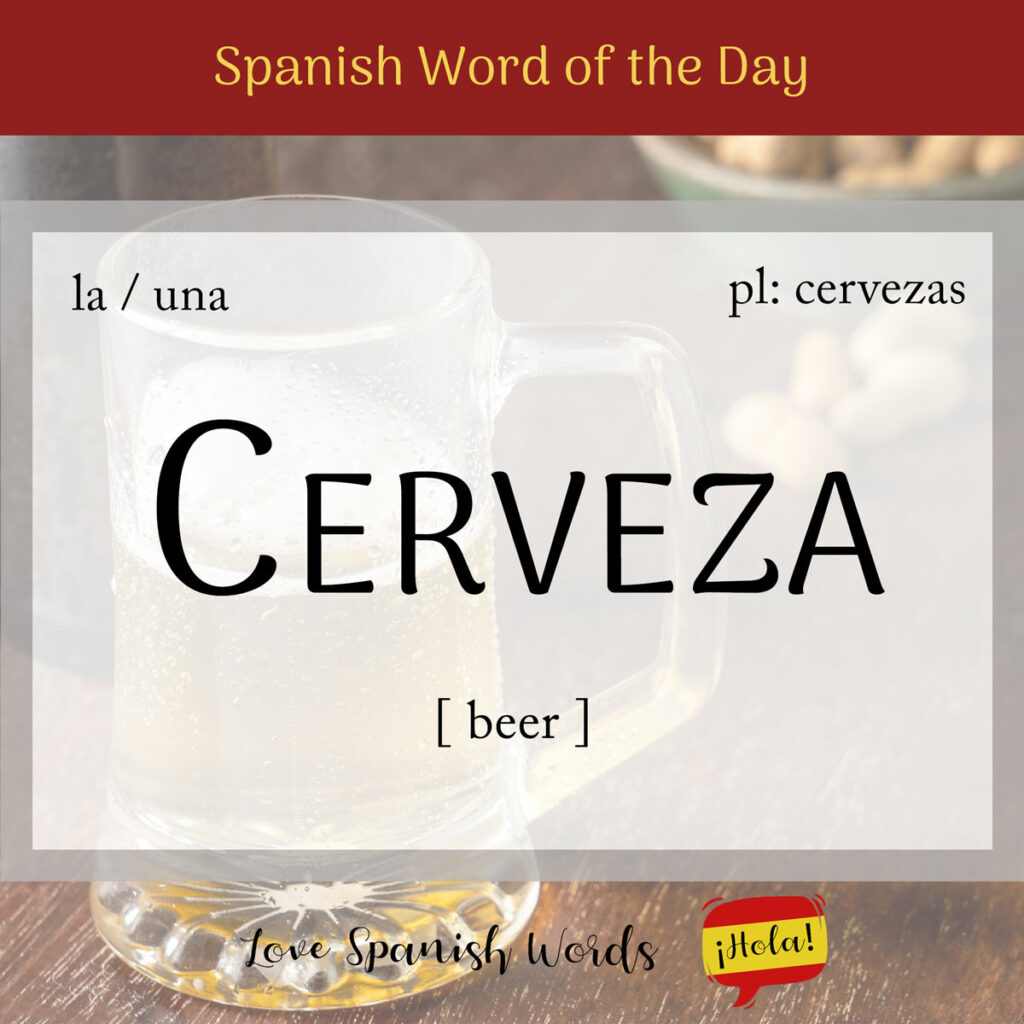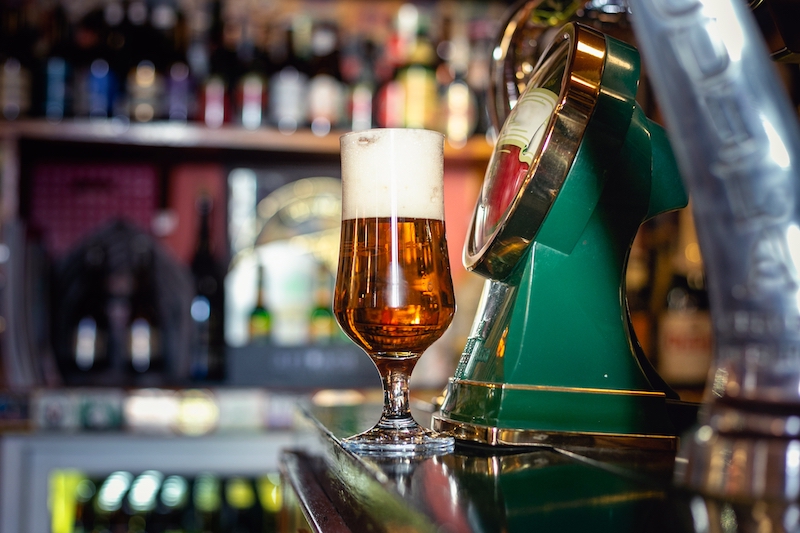Cerveza, translated to beer in English, is one of the most consumed drinks around the world and is most often enjoyed in social settings. If you’re planning to visit a Spanish-speaking country and want to enjoy a cold one with the locals, keep reading to learn the many colloquial terms for cerveza so you order it just like the native Spanish speakers do.
Latin American Pronunciation
European Pronunciation

The Spanish word cerveza derives from the Latin word cerevisia which means ‘of beer.’ In turn, the word beer also derives from Latin, from the word bibere, which means to drink.
Cerveza is a feminine noun that takes the following definite and indefinite articles:
- la cerveza = the beer
- las cervezas = the beers
- una cerveza = a beer
- unas cervezas = some beers
Después del trabajo vamos a ir por unas cervezas.
After work we are going for some beers.
There are two main types of beer: cerveza inglesa (ale) or cerveza dorada (lager). Let’s look at some other words that include the word cerveza.
- cerveza artesanal = artisanal beer
- cerveza clara = light beer
- cerveza oscura/negra = dark beer/black beer
- cerveza inglesa = ale
- cerveza dorada = lager
Cuando viajo me gusta probar cerveza artesanal.
When I travel I like to try artisanal beer.
The main difference between a cerveza inglesa (ale) and a cerveza dorada (lager) is how they are fermentadas (fermented). Cerveza inglesa is fermented at warm temperatures and takes about 3-5 weeks. Cerveza dorada is fermented at cold temperatures and it takes about 6 months for the process to be complete.
Whether you prefer cerveza dorada or cerveza oscura, you can also make a choice between cerveza clara (light beer) and cerveza oscura (dark beer). Cerveza oscura is known to have more antioxidantes (antioxidants) but cerveza clara generally has fewer calories, less alcohol, and a milder flavour.
La cerveza dorada es la favorita de mi padre.
Lager beer is my father’s favorite.

Colloquial ‘cerveza’ terms by country
The passion for beer can be considered a universal language for many. Although cerveza is the official word for beer in Spanish-speaking countries, there are many colloquial terms to refer to this popular drink. The names vary by country and even by region and territory. Let’s look at a few.
Due to Argentina’s Italian influence, the most colloquial word is birra, the Italian word for beer. However, you will also hear birra in Venezuela, Uruguay, Costa Rica, and the Dominican Republic.
Cerveza is often referred to as fría (a cold one) in many Latin American countries such as Venezuela, Puerto Rico, Mexico, and Cuba. Spain also calls their beer fría.
Chela and cheve are used in Mexico, although cheve is used mostly in the northern part of the country and chela is used across the rest of the country. A popular cerveza drink is the michelada. It is a large tarro (jar) of cerveza with the outer top of the jar lined with sal (salt) or tajin (chili powder) and prepared and mixed with limón verde (lime), clamato (a type of tomato sauce), and chile. Chela is also used in Chile, Peru, Ecuador, Honduras, and Venezuela.

Fun Fact: Chela is the term the Mayans from the Yucatan Peninsula in Mexico used to refer to light-skinned blue-eyed Spanish people who arrived during the conquest. Chela was for women and chelo for men. In 1985, the beer industry used chelas (light-skinned women) to promote cerveza clara and morenas (brown/tan skin women) for dark beer. Over time, the term expanded throughout Mexico and now both beers are referred to as chelas.
In Colombia, a cerveza is often called pola and amarga. Spain calls it rubia (blondie), Venezuela and Cuba call it negra (black), Ecuador calls it biela, and the Dominican Republic refers to it as pequeña (small). Another way to call it in Spain is caña or tubo.
Cuando tomo cerveza, prefiero tomar la negra.
When I drink beer, I prefer to drink the dark kind.
Idiomatic expressions featuring ‘cerveza’
Ahogarse en cerveza
Literal translation: to drown in beer
English meaning: to get drunk on beer

